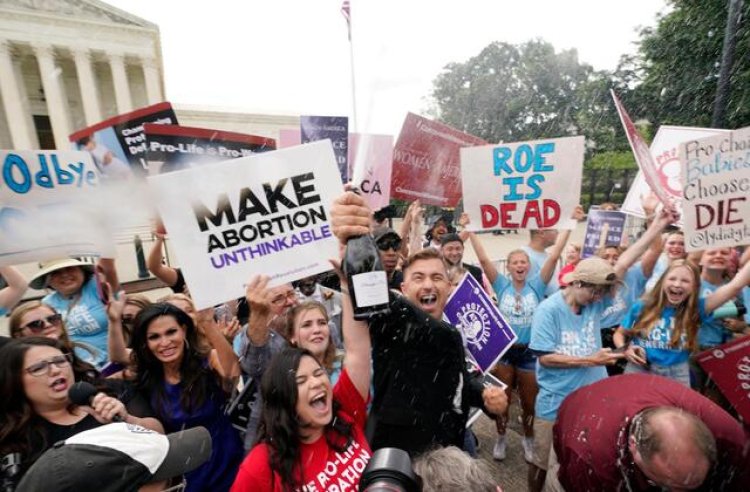The US Supreme Court Overturns the Constitutional Right to Abortion
After the United States Supreme Court overturned its 50-year-old Roe v Wade decision, millions of women in the United States will now lose their constitutional right to abortion.

46th President of the United States, President Joe Biden called it a "tragic error" and urged states to pass legislation allowing the procedure.

United States President Joe Biden. PHOTO FILE
According to research from Planned Parenthood, a healthcare organization that provides abortions, abortion access is expected to be cut off for approximately 36 million women of reproductive age following the Supreme Court ruling.
The Supreme Court ruled by a vote of seven to two in the landmark Roe v Wade case in 1973 that a woman's right to terminate her pregnancy was protected by the US constitution.
The ruling guaranteed American women the right to an abortion during the first three months of pregnancy but allowed for restrictions in the second trimester and prohibitions in the third.
However, anti-abortion rulings have gradually reduced access in more than a dozen states in the decades since.
The Supreme Court was currently hearing Dobbs v Jackson Women's Health Organization, a case that challenged Mississippi's 15-week abortion ban.
The conservative-majority court effectively ended the constitutional right to abortion by ruling in favor of the state.
Five justices strongly supported the nomination: Samuel Alito, Clarence Thomas, Neil Gorsuch, Brett Kavanaugh, and Amy Coney Barrett.
In a separate opinion, Chief Justice John Roberts stated that, while he supported the Mississippi ban, he would not have gone any further.
The three justices who dissented from the majority, Stephen Breyer, Sonia Sotomayor, and Elena Kagan, wrote that they did so "with sorrow - for this court, but more importantly, for the many millions of American women who have today lost a voice."
Friday's decision represents a wholesale reversal of the Supreme Court's own legal precedent - an extremely rare move - and is likely to spark political battles that divide the country.
In states where public opinion on abortion is divided, such as Pennsylvania, Michigan, and Wisconsin, the procedure's legality could be decided on an election-by-election basis. In others, the ruling could spark a new round of legal battles, such as whether people can travel out of state for abortions or order abortion drugs through mail services.


























